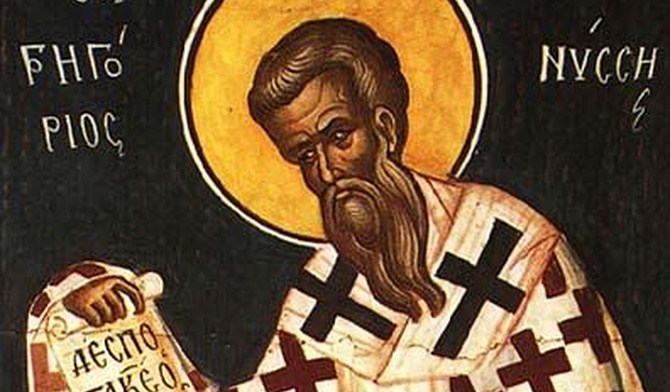The apophatic un-kingdom of God
“There is one true and perfect power which is above all things and governs the whole universe. But it rules not by violence and tyrannical dictatorship, which inforces the obedience of its subjects through fear and compulsion." (Graff, St. Gregory of Nyssa, the Lord’s Prayer, the Beatitudes (Paulist Press; 1953), p. 51)
Though Gregory of Nyssa does not present what we would today consider a systematic political philosophy, he frequently criticizes political power, domination and violence. The homilies on the Lord’s Prayer are no exception.
The Kingdom of God does not rule by “violent kingship” or “tyrannical dictatorship”, enforcing the obedience of its subjects through “fear and compulsion”, says Gregory. When we pray for the Kingdom of God, we pray that the “good power” which already governs the whole universe will free us from the tyranny of the Devil through the Holy Spirit.
A similar line of thought appears in Gregory’s homilies on the Beatitudes. The Kingdom of God does not involve the sort of things associated with kingship in this world. It is only to ease communication that the Kingdom of God is called a “kingdom”, as the “blessedness of the heavens” is “unutterable” (Or viii de beat. II).
Though Gregory is often speaking metaphorically about spiritual freedom from slavery to the passions, his arguments are in many cases directed at political power, slavery and violence as such.
Gregory’s apophatic theology and theory of language can arguably be used as a framework for understanding the Kingdom of God as the negation of worldly power as well as the power of sin, death and the Devil. According to Gregory, we can only describe God in essence indirectly, by negating that which is not God.
The divine is infinite and thus ineffable and incomprehensible, but we know the righteousess and justice of God as the negation of the unrighteousness and unjust ways of this world. Hence, the Kingdom of God, though undefinable on its own terms, might also be described as the negation of all wordly kingdoms.
In other words, the Kingdom of God could tentatively be termed an “apophatic un-kingdom”.
More on this in following posts.

